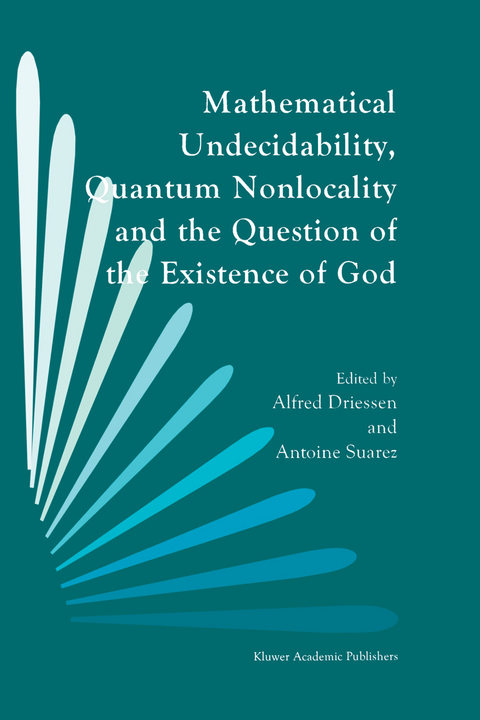
Mathematical Undecidability, Quantum Nonlocality and the Question of the Existence of God
Springer (Verlag)
978-0-7923-4306-6 (ISBN)
I: Mathematics and Undecidability.- 1. How can or should the recent developments in mathematics influence the philosophy of mathematics?.- 2. Number and randomness: algorithmic information theory — new results on the foundations of mathematics.- 3. Meaning, reality and algorithms: implications of the Turing theorem.- 4. The limits of mathematical reasoning: in arithmetic there will always be unsolved solvable problems.- 5. Mathematics: a pointer to an independent realityPenrose’s interpretation of the Gödel and Turing theorems.- II: Physics and Nonlocality.- 6. A critical approach to complexity and self organization.- 7. Indeterminism and nonlocality.- 8. Nonlocality and the principle of free experimentation.- 9. Optical tests of Bell’s theorem.- 10. Nonlocal phenomena: physical explanation and philosophical implications.- 11. Quantum theory: a pointer to an independent reality. Adiscussion of Bernard d’Espagna’s “veiled reality”>.- III: Science, Meta-Science and the Existence of God.- 12. Scientism and scientific knowledge of things and God.- 13. Physics and the mind of God.- 14. The question of the existence of God in the book of Stephen Hawking: A brief history of time.- 15. Final remarks: becoming aware of our fundamental limits in knowing and doing, implications for the question of the existence of God.- Notes on Contributors.
| Zusatzinfo | XV, 227 p. |
|---|---|
| Verlagsort | Dordrecht |
| Sprache | englisch |
| Maße | 155 x 235 mm |
| Themenwelt | Geisteswissenschaften ► Philosophie ► Allgemeines / Lexika |
| Naturwissenschaften | |
| ISBN-10 | 0-7923-4306-9 / 0792343069 |
| ISBN-13 | 978-0-7923-4306-6 / 9780792343066 |
| Zustand | Neuware |
| Haben Sie eine Frage zum Produkt? |
aus dem Bereich


